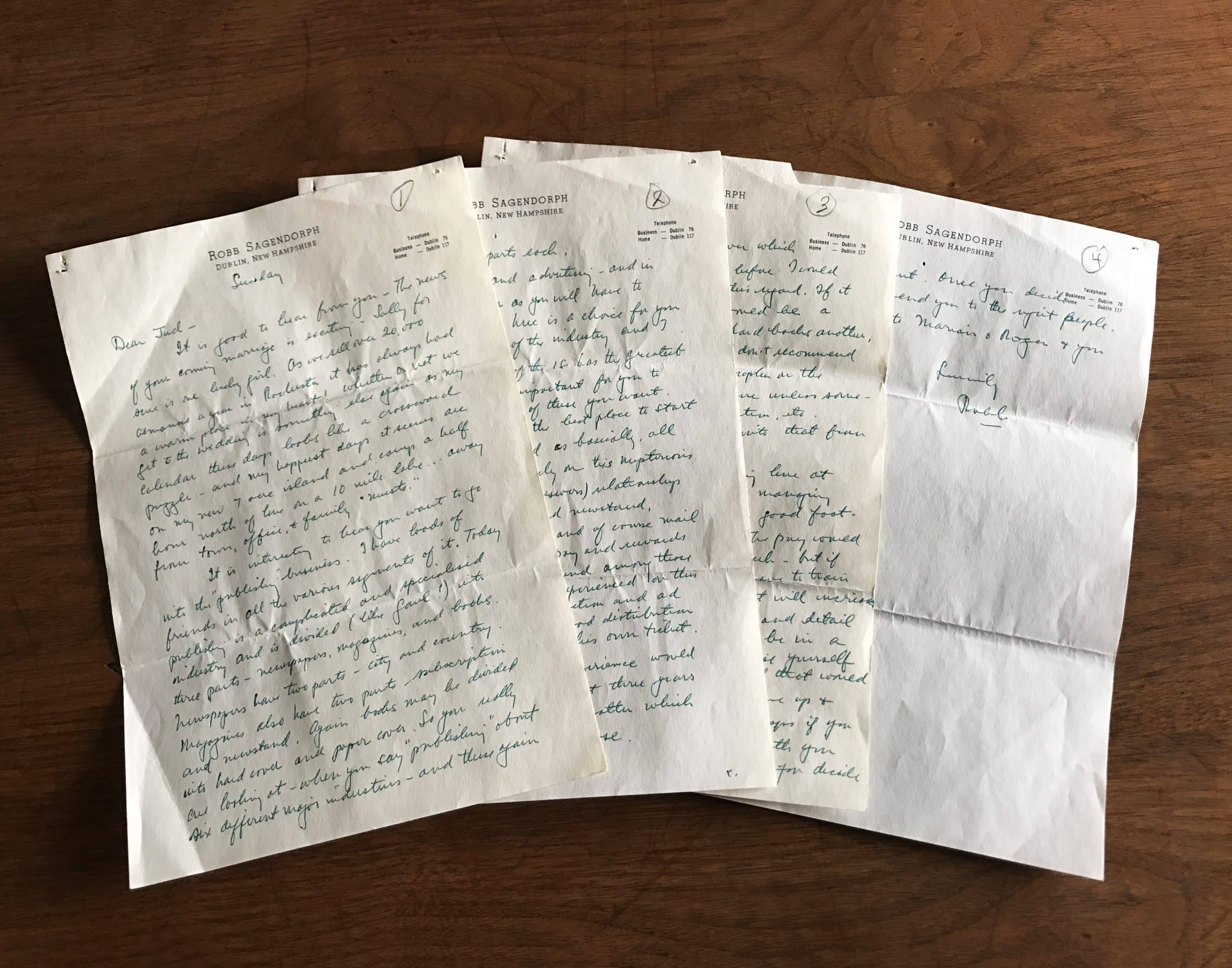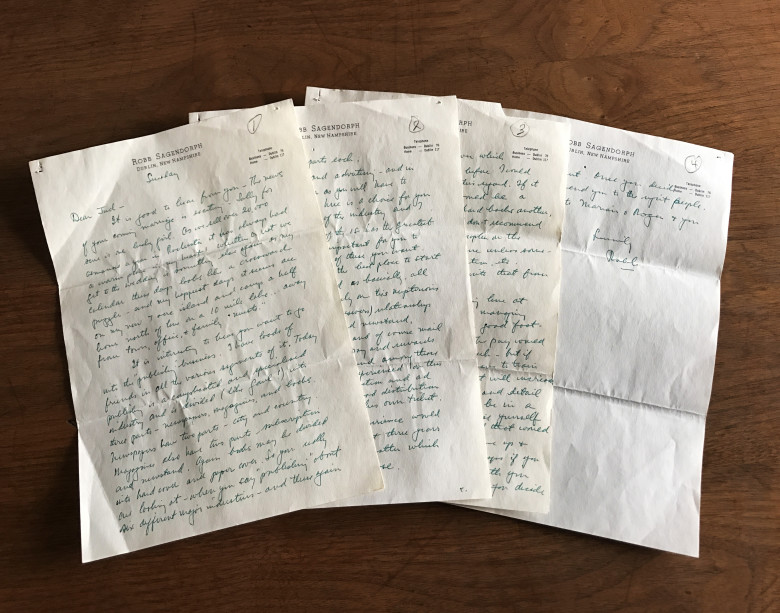‘An Interesting Opening’
The letter that changed a life—and the fate of Yankee. In the summer of 1958, Judson Hale was a recent Dartmouth graduate and Army veteran who was looking to break into the publishing industry. He was living with his family in New York City, and after failing to land a job there, he took the […]

The letter that changed a life—and the fate of Yankee.

In the summer of 1958, Judson Hale was a recent Dartmouth graduate and Army veteran who was looking to break into the publishing industry. He was living with his family in New York City, and after failing to land a job there, he took the suggestion of his mother and called his uncle, Robb Sagendorph, owner and founder of Yankee Publishing, for advice on finding work. “I had an English degree and knew how to drive a tank,” Hale recalls. “And nobody seemed interested in either of those skills.”
By his own estimation, Hale had only met his uncle a few times before. “I called him and said, ‘Uncle Robb’—I made sure to emphasize the ‘uncle’—‘this is your nephew Jud.’”
“Who?” asked Sagendorph.
“Jud,” said Hale. “Your sister’s boy. Your nephew.”
“Oh,” said Sagendorph. “How are you, John?”
Sagendorph was happy to offer suggestions, and about a week later he mailed out a four-page letter to Hale. After outlining some general ideas for his nephew to pursue, including considering employment on the distribution side (“Authors, editors, production and ad men come and go, but a good distribution man practically names his own ticket”), Sagendorph offered up something concrete for his nephew to think about.
“I have an interesting opening at the moment as assistant editor to our managing editor,” he wrote, “which would give you a good foot-in-the-door and overall picture. The pay would not be too hot to begin—$55 a week—but if you were good at it (I would have to train you—especially in layout work), that will increase.”
Hale started the job that September. He thought he’d work for his uncle for maybe a year, then return to New York City with more experience and a better chance of landing work at a bigger publication.
Only, things didn’t quite work out that way. Hale worked closely with his uncle until Sagendorph’s passing in 1970 and went on to become editor of both Yankee and its sister publication, The Old Farmer’s Almanac. Along the way, he turned his uncle’s magazine, which had just 40,000 subscribers when he started, into one of the most successful regional publications in the country. Nearly 60 years later, he’s Yankee’s editor in chief and chairman of its board of directors. Hale still comes to the office every day.
“At first it was a job, then it became a career, and then it became my life,” Hale says.


